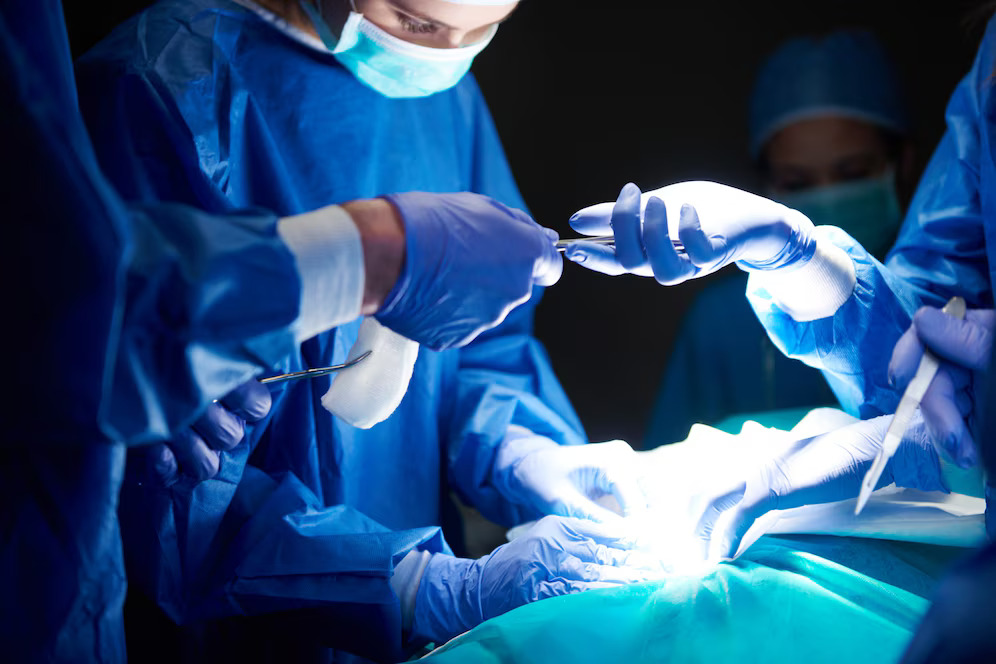When General Surgery Becomes the Answer for Varicose Veins
Varicose veins, those twisted, enlarged veins often found in the legs and feet, are a common problem. While many people can manage their symptoms with conservative treatments like compression socks, exercise, and elevating their legs, sometimes these measures aren’t enough. When varicose veins cause significant pain, discomfort, skin changes, or other complications, general surgery may be the most effective solution.

Understanding When Surgery is Necessary
Your doctor may recommend surgical intervention for varicose veins if:
- Conservative treatments haven’t provided sufficient relief: You’ve tried compression socks and lifestyle changes for several months, but your symptoms persist or worsen.
- You experience significant pain or discomfort: The pain interferes with your daily activities or sleep.
- You develop complications from varicose veins: These can include:
- Venous ulcers: Open sores on the skin, usually near the ankles.
- Bleeding: Varicose veins close to the surface can bleed if injured.
- Thrombophlebitis: Inflammation and blood clots in the veins.
- Chronic venous insufficiency: A condition where the veins can’t effectively return blood to the heart.
- The appearance of your varicose veins is significantly impacting your quality of life: You feel self-conscious or limited in your activities due to their appearance.
Surgical Options for Varicose Veins
Several surgical procedures are available to treat varicose veins. The best option for you will depend on the size, location, and severity of your veins, as well as your overall health.
- Vein Stripping and Ligation: This is a traditional surgical procedure where the affected vein is tied off (ligation) and then removed (stripping) through small incisions. It’s typically used for larger varicose veins.
- Phlebectomy (Ambulatory Phlebectomy): This minimally invasive procedure involves removing smaller varicose veins through tiny punctures 1 in the skin. It’s often used in conjunction with other treatments.
- Endovenous Ablation: This technique uses heat (radiofrequency ablation or laser ablation) to close off the affected vein. A thin catheter is inserted into the vein, and heat is applied to the vein wall, causing it to collapse and seal shut. Blood flow is then redirected to healthier veins.
- Sclerotherapy: While often used for smaller spider veins, sclerotherapy can also be used to treat smaller varicose veins. A solution is injected into the vein, causing it to scar and close.
What to Expect During and After Surgery
The specific details of your surgery and recovery will depend on the procedure you have.
- Anesthesia: Most varicose vein surgeries are performed under local or regional anesthesia, though general anesthesia may be used in some cases.
- Procedure Time: The length of the procedure can vary from 30 minutes to a few hours.
- Recovery: Recovery time also varies. Minimally invasive procedures like phlebectomy and endovenous ablation typically have shorter recovery times than vein stripping and ligation. You may need to wear compression stockings for a period after surgery.
- Pain Management: Your doctor will prescribe pain medication to manage any discomfort after surgery.
- Return to Activities: You’ll likely be able to return to light activities within a few days, but it may take several weeks to fully recover and resume strenuous activities.
Conclusion
If you’re struggling with varicose veins that aren’t responding to conservative treatments, don’t hesitate to explore surgical options. General surgeons specializing in vascular procedures can provide effective solutions to alleviate your symptoms, improve your quality of life, and prevent potential complications. Talk to your doctor to determine if surgery is right for you and take the first step towards healthier, more comfortable legs.
Frequently Asked Questions (FAQs)
1. Will surgery completely get rid of my varicose veins?
Surgery is often very effective at removing or closing off affected veins. However, new varicose veins can develop over time.
2. Is varicose vein surgery painful?
You may experience some discomfort after surgery, but your doctor will prescribe pain medication to manage it. Minimally invasive procedures generally have less post-operative pain.
3. Are there any risks associated with varicose vein surgery?
As with any surgical procedure, there are potential risks, including infection, bleeding, blood clots, and nerve damage. Your surgeon will discuss these risks with you before the procedure.
4. Will I have scars after varicose vein surgery?
The size and appearance of scars will depend on the type of surgery. Minimally invasive procedures typically leave very small scars.
5. Does insurance cover varicose vein surgery?
Insurance coverage varies. Many insurance companies will cover surgery if it’s deemed medically necessary to treat symptoms or complications. Check with your insurance provider for details.
If you’re experiencing troublesome varicose veins and want to explore your treatment options, including surgical solutions, we encourage you to contact us. Our experienced team can assess your condition and recommend the best course of action for your individual needs. Schedule a consultation today to learn more. You can reach us at (972) 865 4454 or visit our website at https://specialtycareclinics.com/.
